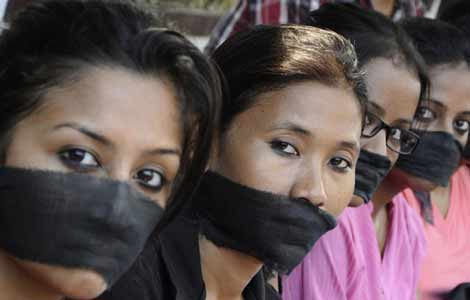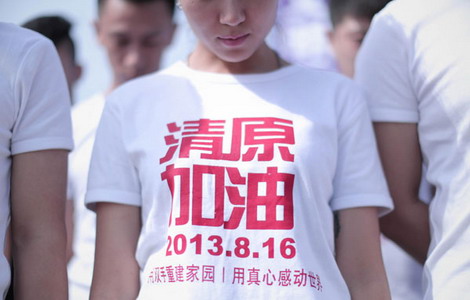Experts call for details on rumor cases
Updated: 2013-08-26 01:12
By Cao Yin (China Daily)
|
||||||||
As police roll out their nationwide campaign against online rumors, experts have urged relevant departments to offer more details of cases being investigated, insisting that the process of tackling rumors should also be transparent.
Beijing police confirmed with Sina Weibo, China's largest micro- blog service, on Sunday that journalist Liu Hu has been detained on allegations of criminal fabrication and dissemination of rumors online. Liu works for Xinkuaibao, a local media company in Guangdong province.
However, police did not give any details on the case, such as which rumor Liu is supposed to have fabricated. Instead, they merely stated that the journalist's detention was in accordance with the law and that investigations are ongoing.
Prior to the detention, Guangdong media reported that on July 29, Liu used his real-name Weibo account to make allegations against Ma Zhengqi, deputy director of the State Administration for Industry and Commerce and former vice-mayor of Chongqing municipality. The journalists alleged that the official had come under suspicion of dereliction of duty for his reform of State-owned enterprises in Chong-qing.
So far, however, police have not confirmed that this is the reason for Liu's detention.
According to Liu's wife, surnamed Qin, who was quoted by local media, the journalist was handcuffed and removed from his home in Chongqing on Friday noon, and police confiscated his laptop, computer and several bank cards.
Cheng Manli, a media professor at Peking University, said, "The police have attached more importance to fighting online rumors recently, but they should make the information provided more specific."
The Ministry of Public Security launched a nationwide campaign against online rumors last week. On Wednesday, the ministry said in a statement that it had closed a company suspected of fabricating and spreading fake information on websites, and placed two men, Qin Zhihui and Yang Xiuyu, in criminal detention.
On Sunday, prosecutors in Jiangsu province also approved the arrest of Zhou Lubao on charges of extortion linked to spreading online rumors, according to the ministry's website.
Zhou, from Gansu province, is suspected of posting more than 15,000 items of fake information last year. The ministry said he had blackmailed more than 20 departments and individuals in this way.
With such a national campaign underway, the process by which rumors are being investigated and prosecuted must be transparent if it is to be fair, Cheng said.
In Liu's case, the information provided by police is far from sufficient, potentially causing confusion among the public and even sparking further rumors, she said.
Some government departments tend to delay their clarification of online rumors because they want to collect more information before making a full statement, Cheng said. "But the effect of quashing rumors, in fact, has been weakened due to these delayed responses."
For instance, the capital's police could give prompt updates on the status of Liu's case, even if there is no substantial outcome, instead of waiting for netizens to ask the question and then offering an answer, she said.
"The more information offered, the less the public doubt," Cheng said.
Xiao Dongfa, director of the university's Modern Publishing Research Institute, said that providing more details and updating information promptly can also improve the government's credibility.
"Police should accurately describe the crimes that the suspect is alleged to have committed, instead of posting vague information," he said.
Although this might be hard for the relevant departments — especially the police — to put into practice, this is what they must do, he added.
Liu Deliang, law professor at Beijing Normal University, said that figuring out how to prevent online rumors appearing in the first place is more important than stopping them.
Police are quick to announce that they have arrested someone for a crime, but they must also give detailed information of the alleged crimes committed, he said, adding that this is a matter of respecting the public's right to honest information.
In addition, there should be a clear definition given of what constitutes a rumor, he said, "or else it will hinder police enforcement and the monitoring of online platforms".
Most Viewed
Editor's Picks

|

|

|

|

|

|
Today's Top News
Bo Xilai's trial continues for fourth day
Typhoon affects 125,700 in S China
FDI quickens in July
Egypt relaxes curfew hours
3rd suspect nabbed in Mumbai rape
China urged to boost ties with Jamaica
'Insincere' Tokyo not ready for talks
Trami affects 360,000 in C China
US Weekly

|

|















